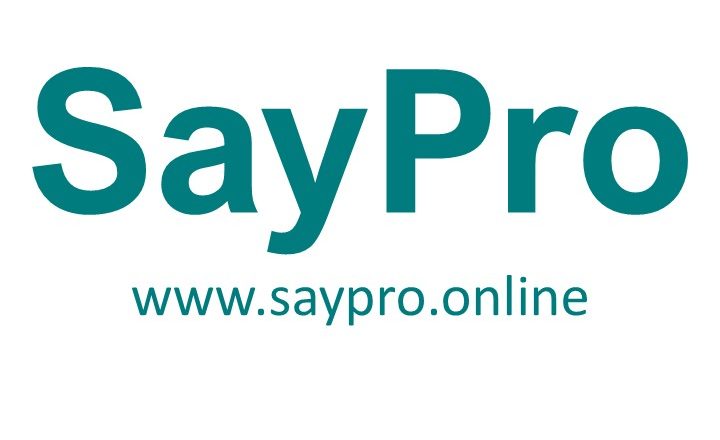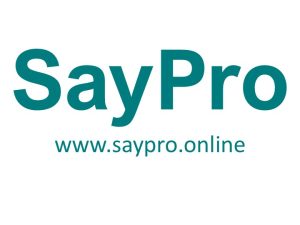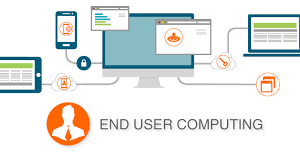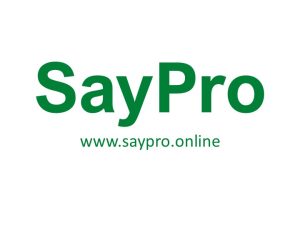SayPro Online Course in Facilitate learning using a variety of given methodologies 117871
- Description
- Curriculum
- FAQ
- Reviews
- Grade
Are you passionate about guiding others to acquire new skills and knowledge? Do you want to master the art of creating dynamic and impactful learning experiences? The “Facilitate Learning Using a Variety of Methodologies” course is a comprehensive professional development program designed to transform aspiring and current trainers into highly effective and versatile educators.
This course is built on the understanding that adult learners have unique needs and learning styles, requiring a nuanced approach to instruction. It moves beyond traditional “teaching” to focus on the principles of “facilitation,” empowering you to create engaging, inclusive, and results-driven learning environments in various training and educational settings, relevant to the diverse context of South Africa.
What You Will Master:
Over a period that typically spans 3-6 months (depending on the chosen delivery format), this in-depth program balances theoretical understanding with extensive practical application. You will delve into 10 core modules, gaining sophisticated expertise in:
- Understanding Adult Learners (Andragogy): Delve into the core principles of how adults learn, including their self-direction, reliance on prior experience, readiness to learn, problem-centered orientation, and internal motivation.
- Learning Styles, Preferences & Inclusivity: Learn to identify and cater to diverse learner needs, utilizing models like VARK and implementing strategies for differentiated instruction and Universal Design for Learning (UDL) to ensure an inclusive environment.
- Foundational Instructional Design & Planning: Develop the ability to design coherent learning programs by setting clear, measurable objectives, structuring content logically, and creating comprehensive session plans.
- Engaging Presentation & Lecture Techniques: Master the art of delivering dynamic and interactive presentations using effective vocal variety, body language, visual aids, strategic questioning, and audience engagement techniques.
- Facilitating Group Activities & Discussions: Learn to design and lead collaborative learning experiences, manage group dynamics, encourage participation, and guide productive discussions and problem-solving.
- Experiential Learning Methodologies: Implement powerful “learning by doing” approaches, including designing and debriefing simulations, role-plays, case studies, and hands-on practical demonstrations to enhance skill acquisition.
- Technology-Enhanced Learning & Blended Approaches: Explore how to effectively integrate digital tools and platforms (e.g., LMS, video conferencing, multimedia) to create flexible and engaging blended or purely online learning environments.
- Assessment for Learning (Formative & Summative): Design and utilize various assessment methods (quizzes, practicals, rubrics, portfolios) to monitor progress, provide constructive feedback, and evaluate overall learning outcomes.
- Managing the Learning Environment & Learner Support: Develop skills in classroom management, creating a positive and safe learning space, addressing challenging behaviors, and providing individualized support to struggling learners.
- Course Evaluation & Continuous Improvement: Learn to systematically evaluate the effectiveness of your training programs using models like Kirkpatrick’s Four Levels, analyze feedback, and implement improvements for ongoing quality assurance.
Why This Course is Essential:
In today’s dynamic professional landscape, the ability to effectively train and develop others is a highly sought-after skill. This course empowers you to:
- Design impactful learning: Create training that truly meets learner and organizational needs.
- Engage diverse audiences: Adapt your methods to connect with varied backgrounds and learning preferences.
- Drive measurable results: Ensure your training leads to demonstrable improvements in knowledge, skills, and performance.
- Advance your career: Position yourself as a skilled and versatile educator, trainer, or facilitator in corporate, vocational, or community settings.
This program culminates in a comprehensive Portfolio of Evidence (PoE), where you will showcase your practical application of learned methodologies, solidifying your competence as a professional facilitator. Embark on this journey to become a confident and highly effective learning facilitator, making a lasting impact on those you teach.
-
11.1 CONTACT DETAILSText lesson
-
21.2 COMPETENCEText lessonThis lesson is locked because you haven't completed the previous one yet. Finish the previous lesson to unlock this one.
-
31.3 ASSESSMENT STRATEGYText lessonThis lesson is locked because you haven't completed the previous one yet. Finish the previous lesson to unlock this one.
-
41.4 ASSESSMENT PREPARATIONText lessonThis lesson is locked because you haven't completed the previous one yet. Finish the previous lesson to unlock this one.
-
51.5 AGREED ASSESSMENT PLANText lessonThis lesson is locked because you haven't completed the previous one yet. Finish the previous lesson to unlock this one.
-
61.6 Interview (RPL Purposes)Text lessonThis lesson is locked because you haven't completed the previous one yet. Finish the previous lesson to unlock this one.
-
71.7 LETTER OF COMMITMENT FROM THE LEARNERText lessonThis lesson is locked because you haven't completed the previous one yet. Finish the previous lesson to unlock this one.
-
81.8 Declaration of AuthenticityText lessonThis lesson is locked because you haven't completed the previous one yet. Finish the previous lesson to unlock this one.
-
91.9 PORTFOLIO BUILDINGText lessonThis lesson is locked because you haven't completed the previous one yet. Finish the previous lesson to unlock this one.
-
101.10 RECORD OF LEARNINGText lessonThis lesson is locked because you haven't completed the previous one yet. Finish the previous lesson to unlock this one.
-
111.11 ASSESSMENT DECISION & EVIDENCE EVALUATION RECORDText lessonThis lesson is locked because you haven't completed the previous one yet. Finish the previous lesson to unlock this one.
-
121.12 Assessor’s feedback report to the candidateText lessonThis lesson is locked because you haven't completed the previous one yet. Finish the previous lesson to unlock this one.
-
131.13 Moderator’s ReportText lessonThis lesson is locked because you haven't completed the previous one yet. Finish the previous lesson to unlock this one.
-
141.14 ASSESSMENT REVIEWText lessonThis lesson is locked because you haven't completed the previous one yet. Finish the previous lesson to unlock this one.
-
151.15 Candidate Appeal FormText lessonThis lesson is locked because you haven't completed the previous one yet. Finish the previous lesson to unlock this one.
-
161.16 Assessor's Contingency PlanText lessonThis lesson is locked because you haven't completed the previous one yet. Finish the previous lesson to unlock this one.
-
172.1 SayPro Lesson in Understanding the Adult Learner (Andragogy)Text lessonThis lesson is locked because you haven't completed the previous one yet. Finish the previous lesson to unlock this one.
-
182.2 SayPro Lesson in Learning Styles, Preferences & InclusivityText lessonThis lesson is locked because you haven't completed the previous one yet. Finish the previous lesson to unlock this one.
-
192.3 SayPro Lesson in Foundational Instructional Design & PlanningText lessonThis lesson is locked because you haven't completed the previous one yet. Finish the previous lesson to unlock this one.
-
202.4 SayPro Lesson in Engaging Presentation & Lecture TechniquesText lessonThis lesson is locked because you haven't completed the previous one yet. Finish the previous lesson to unlock this one.
-
212.5 SayPro Lesson in Facilitating Group Activities & DiscussionsText lessonThis lesson is locked because you haven't completed the previous one yet. Finish the previous lesson to unlock this one.
-
222.6 SayPro Lesson in Experiential Learning MethodologiesText lessonThis lesson is locked because you haven't completed the previous one yet. Finish the previous lesson to unlock this one.
-
232.7 SayPro Lesson in Technology-Enhanced Learning & Blended ApproachesText lessonThis lesson is locked because you haven't completed the previous one yet. Finish the previous lesson to unlock this one.
-
242.8 SayPro Lesson in Assessment for Learning (Formative & Summative)Text lessonThis lesson is locked because you haven't completed the previous one yet. Finish the previous lesson to unlock this one.
-
252.9 SayPro Lesson in Managing the Learning Environment & Learner SupportText lessonThis lesson is locked because you haven't completed the previous one yet. Finish the previous lesson to unlock this one.
-
262.10 SayPro Lesson in Course Evaluation & Continuous ImprovementText lessonThis lesson is locked because you haven't completed the previous one yet. Finish the previous lesson to unlock this one.
-
273.1 Understanding the Adult Learner (Andragogy)AssignmentThis lesson is locked because you haven't completed the previous one yet. Finish the previous lesson to unlock this one.
-
283.2 Learning Styles, Preferences & InclusivityAssignmentThis lesson is locked because you haven't completed the previous one yet. Finish the previous lesson to unlock this one.
-
293.3 Foundational Instructional Design & PlanningAssignmentThis lesson is locked because you haven't completed the previous one yet. Finish the previous lesson to unlock this one.
-
303.4 Engaging Presentation & Lecture TechniquesAssignmentThis lesson is locked because you haven't completed the previous one yet. Finish the previous lesson to unlock this one.
-
314.1 Facilitating Group Activities & DiscussionsAssignmentThis lesson is locked because you haven't completed the previous one yet. Finish the previous lesson to unlock this one.
-
324.2 Experiential Learning MethodologiesAssignmentThis lesson is locked because you haven't completed the previous one yet. Finish the previous lesson to unlock this one.
-
334.3 Technology-Enhanced Learning & Blended ApproachesAssignmentThis lesson is locked because you haven't completed the previous one yet. Finish the previous lesson to unlock this one.
-
344.4 Managing the Learning Environment & Learner SupportAssignmentThis lesson is locked because you haven't completed the previous one yet. Finish the previous lesson to unlock this one.
Aspiring and current corporate trainers
Workplace coaches and mentors
Educators and lecturers
Subject Matter Experts (SMEs) who need to train others
HR professionals involved in learning and development
Individuals interested in becoming vocational assessors or moderators in the future.
Applying adult learning principles (Andragogy).
Catering to different learning styles and ensuring inclusivity.
Designing structured and effective lesson plans.
Delivering engaging presentations and lectures.
Facilitating dynamic group activities and discussions.
Implementing hands-on, experiential learning methodologies (e.g., simulations, role-plays).
Leveraging technology for blended and online learning.
Designing and implementing effective formative and summative assessments.
Managing the learning environment and providing learner support.
Evaluating course effectiveness for continuous improvement.
A National Senior Certificate (Matric/Grade 12) or an equivalent NQF Level 4 qualification.
Good verbal and written communication skills in English, as the course involves extensive reading, writing, and presentation.
Strong analytical and critical thinking skills.
A keen interest in adult education and training.
Access to a computer with internet for research and potentially online learning components.
Theoretical learning: Through lectures, discussions, readings, and online modules.
Practical application: Through micro-teaching sessions, simulated facilitation exercises, role-plays, and group activities.
Portfolio of Evidence (PoE): A crucial assessment component where you compile various types of evidence (e.g., lesson plans, assessment tools, reflections, video recordings of your facilitation) to demonstrate your competence against the learning outcomes. Assessment is continuous, combining formative tasks, practical demonstrations, and a final summative PoE submission.
Workplace Trainer/Facilitator: In corporate training departments, NGOs, or private training academies.
Learning and Development Practitioner: In HR departments.
Skills Development Facilitator (SDF) Assistant: Supporting SDFs in organisations.
Vocational Instructor/Lecturer: In colleges or technical training centres.
It also provides a strong foundation for further studies in education, assessment, and moderation.

Okay, here are the detailed course requirements for the "Facilitate Learning Using a Variety of Methodologies" qualification. These criteria are set to ensure that participants are well-equipped to undertake the demands of this professional development program in education and training.
Course Requirements: Facilitate Learning Using a Variety of Methodologies
To enroll in and successfully complete the "Facilitate Learning Using a Variety of Methodologies" course, prospective participants must meet specific academic, personal, and administrative requirements.
1. Academic and Educational Requirements:
- Minimum Qualification: Applicants are generally required to possess a National Senior Certificate (Matric / Grade 12) or an equivalent qualification at NQF Level 4. This ensures a foundational level of academic literacy and cognitive skills necessary for the theoretical and practical demands of an NQF Level 5 or 6 course.
- Foundational Learning Competence (FLC): While not always a strict prerequisite for entry, a Foundational Learning Competence (FLC) Certificate in both Communication and Numeracy is highly recommended. Some training providers may assess these competencies during the application process or integrate FLC into the course if deemed necessary.
2. Language Proficiency:
- English Language Fluency: A strong command of the English language is essential, both in written and verbal communication. The course involves extensive reading of pedagogical texts, writing lesson plans and reflections, delivering presentations (micro-teaching), and engaging in complex discussions. The ability to articulate concepts clearly and provide constructive feedback is paramount.
3. Personal Attributes and Qualities:
- Passion for Learning and Development: A genuine interest in helping others learn, grow, and develop new skills.
- Strong Communication Skills: Beyond language fluency, this includes active listening, clear articulation, and the ability to adapt communication to diverse audiences.
- Patience and Empathy: Essential for understanding learner challenges and adapting facilitation styles.
- Organisational Skills: The ability to plan, prepare, and manage learning sessions effectively.
- Adaptability and Flexibility: Readiness to learn new methodologies and adjust approaches based on learner needs and situational demands.
- Critical Thinking and Problem-Solving: The capacity to analyze learning situations, identify challenges, and devise effective solutions.
- Professionalism and Ethical Conduct: Adherence to high standards of conduct, maintaining confidentiality, and acting with integrity in all learning contexts.
4. Identification and Legal Status:
- Valid South African ID: All applicants must possess a valid South African Identity Document (ID Book or ID Card).
- Study Permit (for non-South African citizens): International applicants must have a valid study permit for South Africa to enroll in the course.
5. Technical Requirements (for blended/online components):
- Reliable Internet Access: Essential for accessing online learning materials, participating in virtual classes, and submitting assignments.
- Computer/Laptop: Access to a personal computer or laptop with a working webcam and microphone for online sessions and creating documents/presentations.
- Basic Computer Literacy: Familiarity with common software applications (e.g., word processing, presentation software) and navigating online platforms.
6. Other Potential Requirements:
- Interview Process: Some training providers may conduct an interview to assess your suitability for the role of a facilitator, your communication skills, and your commitment to the program.
- Portfolio of Evidence Components: While the PoE is developed during the course, applicants should be prepared for the significant practical application and documentation required for its compilation. This might include opportunities for micro-teaching, which could require basic recording capabilities.
Recent Posts
- Daily Activity
- SayPro Target key industry professionals and organizations to attend the event
- SayProCHAR Daily Activity Report for Itumeleng Malete SayPro Education Specialist 17/06/2025
- SayPro Ensure event content on the SayPro website is regularly updated and optimized for search
- SayPro Design and implement a marketing campaign using email, social media, and online ads to increase registration


